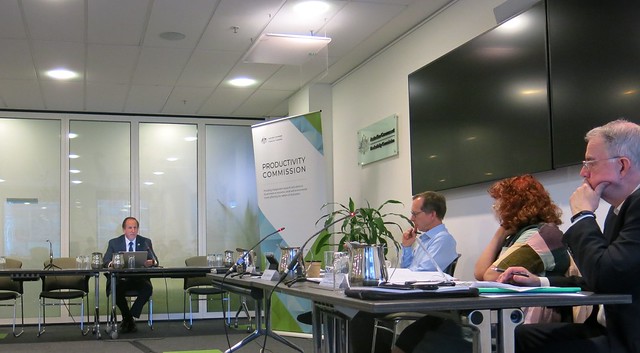Melbourne, Australia—UPF-Australia vice president, Dr. John Bellavance, made a submission to the Australian Productivity Commission—the government’s main review and advisory body on a range of economic, social and environmental issues affecting the welfare of Australians—contending that without values education, productivity and well-being in schools and workplaces will always fall short. Therefore, maintaining values education has social and economic benefits. Dr. Bellavance is the founder of CyberValues.org and holds a Ph.D. in values education from Monash University. He has been writing and teaching values education for 30 years and has expertise in the moral use of information and communication technologies (ICTs) by young people and the impact of ICTs on their well-being.
Dr. Bellavance said: “As a high school teacher of 19 years, I came to understand some of the challenges that students face with respect to their personal development and their social engagement with others; challenges associated with their own attitudes and anti-social behaviors. Helping young people meet these challenges is critical for their mental health and their ability to be successful in the workplace and in their relationships.”
He maintained that the primary source of values are parents and the extended family. However, teachers see firsthand the lack of values in students. This can be shown in a lack of respect towards teachers and others; lack of self-control of their behaviors at school; lack of accountability for their own inappropriate behaviors; lack of self-control with respect to their use of ICTs; and lack in managing themselves and their personal sense of responsibility with respect to their own learning.
Dr. Bellavance further contended that there are five reasons why we need values education. First, there is a need for a proactive approach to dealing with the mental health issues and low self-esteem associated with lack of values, meaning and purpose in the lives of many people. Second, is a need to foster a moral identity as a good and successful person. Third, is the need to address deficiencies in private and public values. Fourth, is the challenges faced by families, and fifth, is the need to empower individuals.

